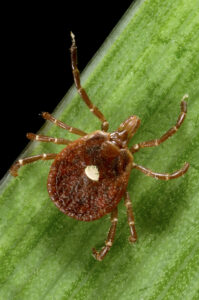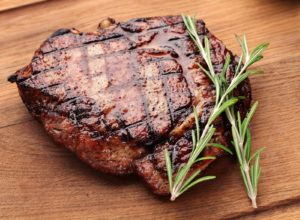
For years scientists have been watching the spread of the Lone Star Tick moving progressively northward from southeastern states. One health condition that can be caused by the Lone Star Tick is an allergy to red meat, called the alpha-gal allergy syndrome.
It was recently revealed that the first known death from the alpha-gal syndrome occurred in a healthy 47 year old New Jersey man who consumed a hamburger at a barbecue in 2024 - he died from a fatal anaphylactic reaction a few hours later. Earlier that summer he had been bitten by small Lone Star Tick larvae on his legs, but at the time he thought they were only chigger (small mites) bites.
The symptoms of the allergy are pretty incredible: eat some red meat (beef, pork, or venison) and a few hours later have severe allergy symptoms such as severe abdominal pain, itching, hives, swelling, shortness of breath, vomiting, and diarrhea. The allergy is to the sugar molecule commonly called alpha-gal which is found in red meat, dairy, and some medications (such as the cancer drug cetuximab).
Once a person has this allergy there is no cure, vaccine, or treatment other than avoiding red meat (and in more severe cases dairy foods), treating the allergy symptoms, and carrying an EpiPen (just in case). Many cases start to improve within six months to a few years.
Martha's Vineyard has been exploding with cases of alpha-gal syndrome (lots of lone star ticks on the island) to the point that restaurants are offering alpha-gal safe foods (vegetarian and vegan food) on their menus.
From Medical Xpress: First death linked to 'meat allergy' spread by ticks
A healthy 47-year-old man from New Jersey died abruptly four hours after consuming beef. The cause of his death had been a mystery until UVA Health's Thomas Platts-Mills, MD, Ph.D., investigated. A world-renowned allergist, Platts-Mills discovered the allergy and remains the foremost expert on it. ...continue reading "Lone Star Tick Bites and Red Meat Allergies"

 Very interesting. Gives people a way to eat red meat, but not increase their colorectal cancer risk (by also eating resistant starch, e.g., potato salad or beans). From Science Daily:
Very interesting. Gives people a way to eat red meat, but not increase their colorectal cancer risk (by also eating resistant starch, e.g., potato salad or beans). From Science Daily: